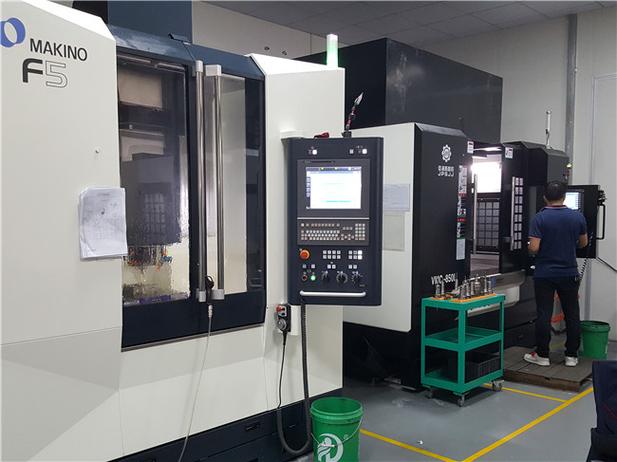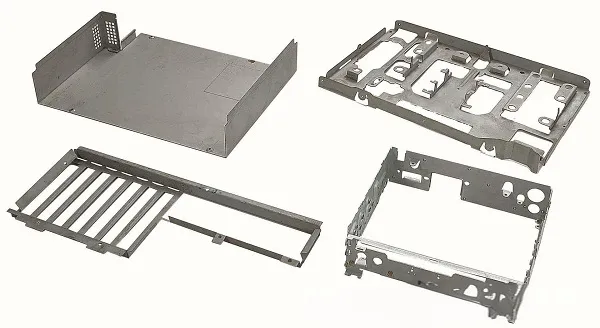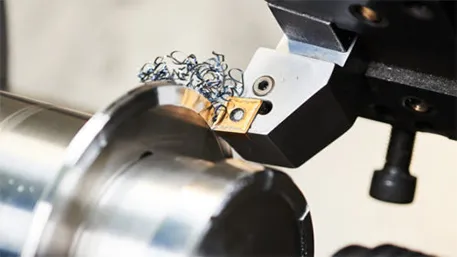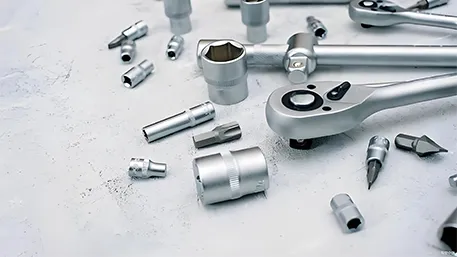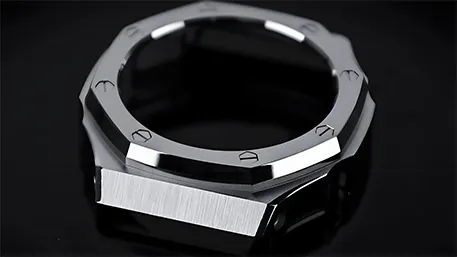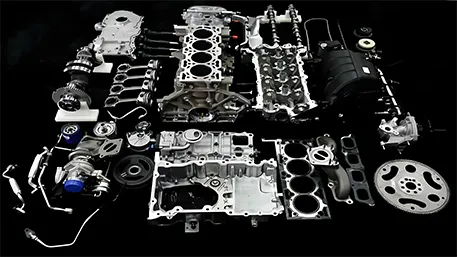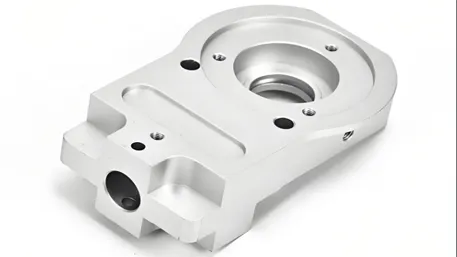Custom CNC milling parts manufacturers specialize in transforming raw materials into precision components through computer-controlled machining processes. These manufacturers combine advanced equipment, material expertise, and engineering acumen to deliver parts with complex geometries, tight tolerances, and consistent quality across industries. This article outlines the core competencies of professional CNC milling manufacturers, covering technical capabilities, quality systems, and application-specific solutions.
1. Material Processing Range and Expertise
Leading CNC milling manufacturers handle a diverse spectrum of materials, with processing parameters optimized for each type:
Metallic materials form the majority of milled components:
- Aluminum alloys (6061, 7075): Machined at spindle speeds 10,000-20,000 RPM, achieving surface finishes as low as Ra 0.8 μm. 6061 accounts for 45% of all milled parts due to its balanced machinability and strength (310 MPa tensile).
- Stainless steel (304, 316): Processed with carbide tools and coolant systems to manage heat, with feed rates 30-50% lower than aluminum. 316 stainless offers 515 MPa tensile strength and 1,000+ hours salt spray resistance.
- Carbon steel (1045, 4140): Machined at 3,000-6,000 RPM, with 4140 providing 655 MPa tensile strength post-heat treatment.
- Titanium (Grade 5): Requires specialized tooling (carbide with titanium nitride coating) and slower feed rates (50-100 mm/min) due to low thermal conductivity, with 900 MPa tensile strength.
Non-metallic materials include:
- Engineering plastics (ABS, POM, PC): Machined with high-speed steel tools at 6,000-12,000 RPM, with minimal clamping force to prevent deformation.
- Composites (carbon fiber, glass-filled polymers): Utilize diamond-coated tools to minimize fiber pull-out, with dust extraction systems to maintain part integrity.
Material certification services include:
- Mill test reports (MTRs) for 98% of metal orders
- RoHS compliance verification for electronics components
- FDA material certification for food-contact applications (10-15% of plastic parts)
2. CNC Milling Equipment and Capabilities
Manufacturers maintain diverse equipment portfolios to handle varied part requirements:
3-axis CNC milling machines:
- Handle prismatic parts up to 1,200 × 800 × 600 mm
- Achieve positional accuracy of ±0.01 mm
- Spindle speeds: 8,000-15,000 RPM
- Suitable for 60% of standard milling projects, including flat components and simple 3D features
4-axis CNC systems:
- Add rotational axis (360°) with ±0.005° angular accuracy
- Process parts up to 800 × 600 × 500 mm
- Reduce setup times by 40% for parts requiring multi-sided machining
- Ideal for rotational components like gears and cams
5-axis CNC milling centers:
- Simultaneous 5-axis movement with ±0.003 mm positional accuracy
- Handle complex geometries up to 600 × 500 × 400 mm
- Spindle speeds up to 24,000 RPM for high-speed machining
- Reduce part handling by 70% compared to 3-axis machining for complex parts
- Account for 15% of projects, primarily aerospace and medical components
Auxiliary equipment includes:
- Automatic tool changers (20-40 tool capacity) reducing downtime by 30%
- Probing systems for in-process inspection (±0.001 mm accuracy)
- Coolant systems (flood, mist) to manage chip evacuation and tool temperature
3. Precision Control and Machining Tolerances
Advanced process controls ensure consistent part accuracy:
Dimensional tolerance capabilities:
- Critical dimensions: ±0.005 mm (5-axis machining)
- General dimensions: ±0.01 mm (4-axis) and ±0.02 mm (3-axis)
- Hole positional tolerance: ±0.015 mm (relative to datums)
- Flatness: 0.05 mm/m for aluminum; 0.08 mm/m for steel
Surface finish capabilities:
- Ra 0.8 μm (polished finish) for sealing surfaces
- Ra 1.6 μm for general functional surfaces
- Ra 3.2 μm for non-critical surfaces
- Achieved through variable feed rates (50-500 mm/min) and tool selection
Geometric tolerances maintained:
- Straightness: 0.01 mm/100 mm
- Perpendicularity: 0.02 mm/100 mm
- Parallelism: 0.015 mm/100 mm
- Circularity: 0.008 mm for rotating components
Process validation includes:
- First article inspection (FAI) for 100% of new projects
- Statistical Process Control (SPC) for runs exceeding 500 pieces
- Cpk ≥ 1.33 for critical dimensions (99.99% conformance rate)
4. Design Support and Engineering Collaboration
Manufacturers provide comprehensive design assistance to optimize manufacturability:
DFM (Design for Manufacturability) services:
- Free analysis for orders exceeding $1,000
- Completed within 24-48 hours of design submission
- Typical recommendations reduce production costs by 15-30%
CAD/CAM capabilities:
- Accept 3D models in STEP, IGES, STL, and native formats (SolidWorks, AutoCAD)
- Use Mastercam, GibbsCAM, and Fusion 360 for toolpath optimization
- Simulate machining processes to detect collisions and optimize cycle times
Engineering support includes:
- Material selection guidance based on application requirements
- Tolerance analysis to balance functionality and cost
- Feature optimization (e.g., fillet radii matching standard tool sizes reduces cycle time by 20%)
- Prototyping feedback for design refinement (75% of projects require 1-2 iterations)
5. Quality Management and Inspection Systems
Rigorous quality protocols ensure part conformity:
Inspection equipment portfolio:
- Coordinate Measuring Machines (CMMs) with 0.5 μm accuracy, capable of measuring parts up to 2,000 × 1,000 × 800 mm
- Optical comparators (up to 100× magnification) for 2D feature verification
- Surface roughness testers (Ra 0.02-100 μm range)
- Hardness testers (Rockwell, Brinell, Vickers) for material verification
Quality management certifications:
- ISO 9001:2015 (general manufacturing)
- AS9100D (aerospace components)
- IATF 16949 (automotive parts)
- ISO 13485 (medical devices)
Inspection protocols:
- 100% visual inspection for all parts
- Sampling plans: MIL-STD-105E (AQL 1.0) for general parts; 100% inspection for critical components
- First article inspection reports (FAIR) with dimensional data and material certifications
- In-process inspection at 10%, 50%, and 100% of production runs for large batches
6. Industry-Specific Solutions and Applications
Custom CNC milling manufacturers serve diverse sectors with specialized capabilities:
Aerospace industry:
- Produce structural components from 7075 aluminum and titanium with ±0.005 mm tolerances
- Machined parts include wing brackets, engine mounts, and hydraulic manifolds
- Compliance with AS9100D and Nadcap certifications
- Average order volume: 10-500 pieces with 4-6 week lead times
Automotive sector:
- Manufacture prototype and production parts from 6061 aluminum and 1045 steel
- Components include suspension parts, sensor housings, and custom brackets
- IATF 16949 compliance with PPAP documentation for production parts
- Volume capabilities: 100-10,000+ pieces with 2-4 week lead times
Medical device manufacturing:
- Produce 316 stainless steel and titanium components with Ra 0.8 μm surface finishes
- Parts include surgical instrument components, diagnostic equipment housings
- ISO 13485 certification and biocompatibility testing (ISO 10993)
- Strict traceability requirements with 7+ year documentation retention
Industrial machinery:
- Fabricate large components (up to 1,200 mm) from 4140 steel and cast iron
- Parts include gearboxes, bearing housings, and custom fixtures
- Emphasis on flatness and parallelism for mating surfaces
- Production volumes: 1-1,000 pieces with 1-3 week lead times
7. Production Capacity and Service Offerings
Manufacturers scale operations to meet diverse customer needs:
Production volume capabilities:
- Prototyping: 1-10 pieces (3-5 business days)
- Low-volume production: 10-500 pieces (5-10 business days)
- Medium production: 500-5,000 pieces (10-15 business days)
- High-volume production: 5,000+ pieces (15-30 business days)
Value-added services:
- Secondary operations: anodizing, plating, painting (add 3-5 days)
- Assembly services (mechanical and adhesive bonding)
- Custom packaging (wooden crates for large parts, anti-static for electronics)
- JIT (Just-In-Time) delivery programs with 98% on-time rate
Pricing structure factors:
- Material costs (30-50% of total)
- Machine time ((60-)150/hour based on equipment complexity)
- Setup time (one-time cost for first article)
- Inspection requirements (add 5-15% for critical components)
Minimum order quantities:
- Prototypes: 1 piece (no MOQ)
- Production: 10 pieces for most materials
- Special materials (titanium, composites): 25+ pieces
Frequently Asked Questions
Q: What is the maximum part size you can mill?
A: Our 3-axis machines handle parts up to 1,200 × 800 × 600 mm. For larger components, we offer modular machining with precision alignment (±0.02 mm) between sections.
Q: How do you ensure consistent quality across production runs?
A: We maintain detailed process sheets with verified parameters, use SPC for critical dimensions, and retain tooling for repeat orders. Our CMM inspection data is stored digitally for trend analysis.
Q: Can you handle rush orders for CNC milled parts?
A: Yes, rush services are available with 24-48 hour turnaround for prototypes and 3-5 days for small production runs (10-50 pieces), with a 30-50% premium depending on complexity.
If you’re seeking a reliable custom CNC milling parts manufacturer, our facility combines 5-axis precision, material expertise, and industry-specific certifications to deliver components that meet your exact specifications. Whether you need aerospace-grade titanium parts, medical device components, or industrial machinery parts, we provide end-to-end solutions from design optimization to final inspection. Contact us with your drawings or 3D models—our engineering team will provide a detailed quote, lead time, and manufacturability analysis to ensure your project success.
